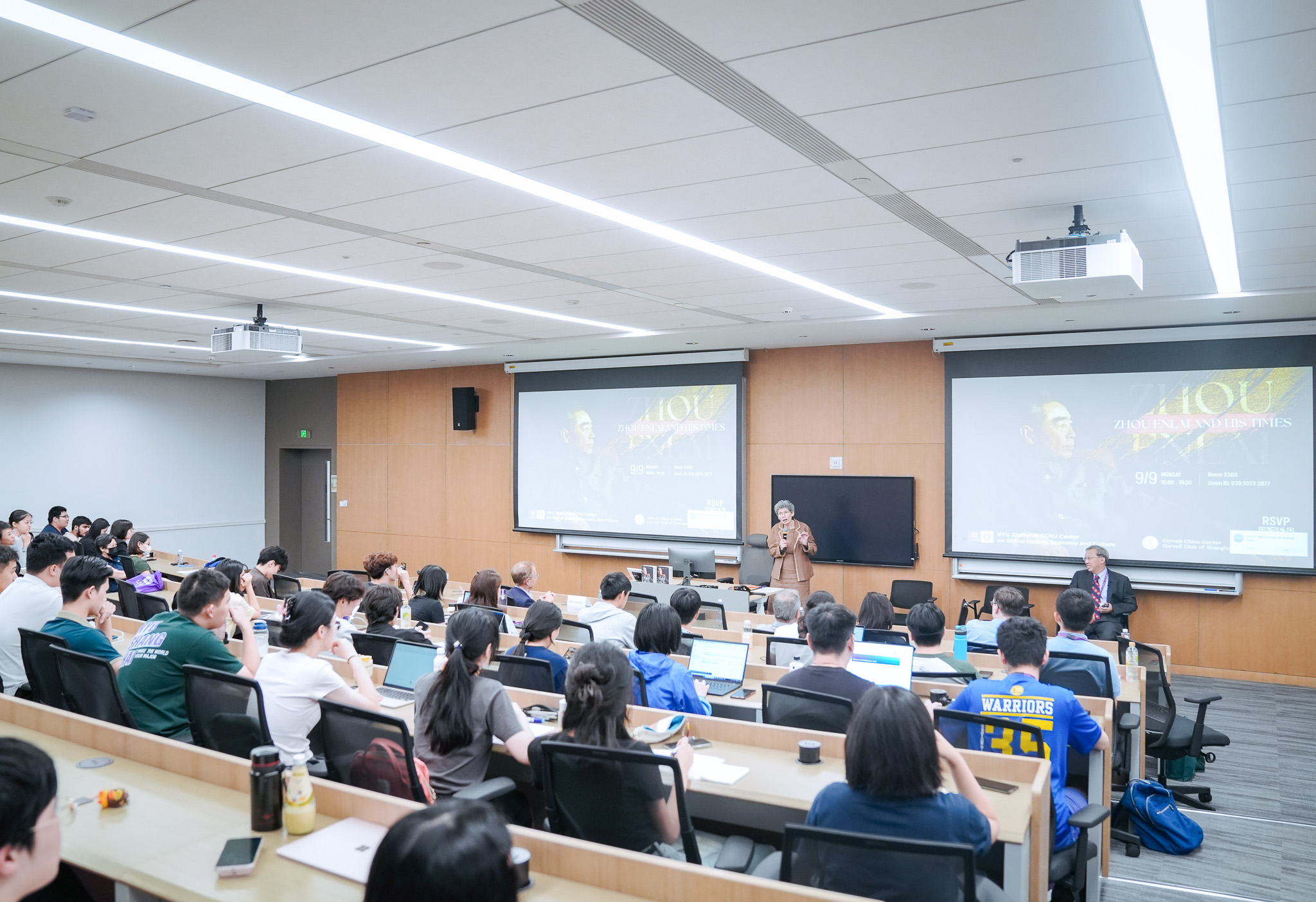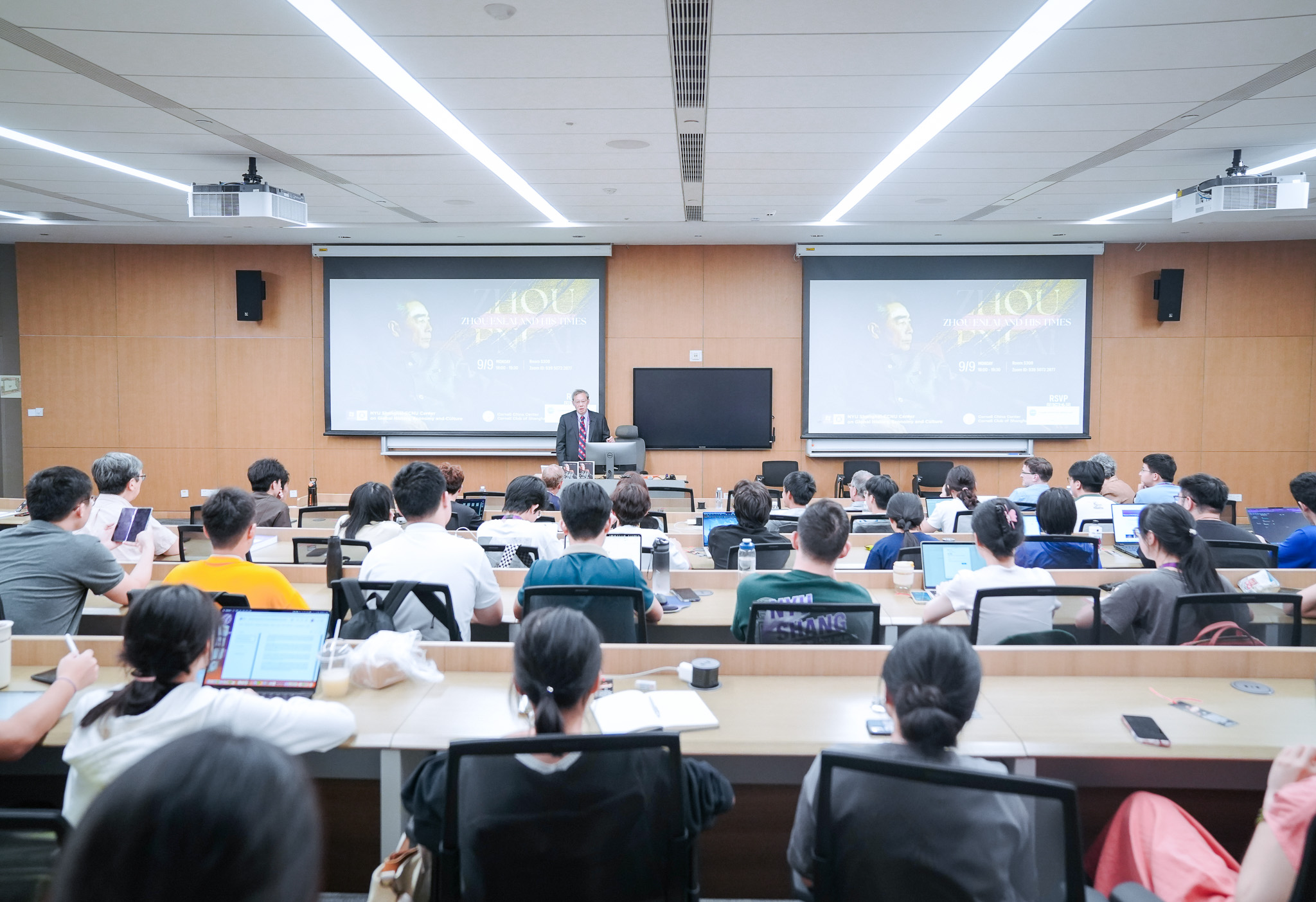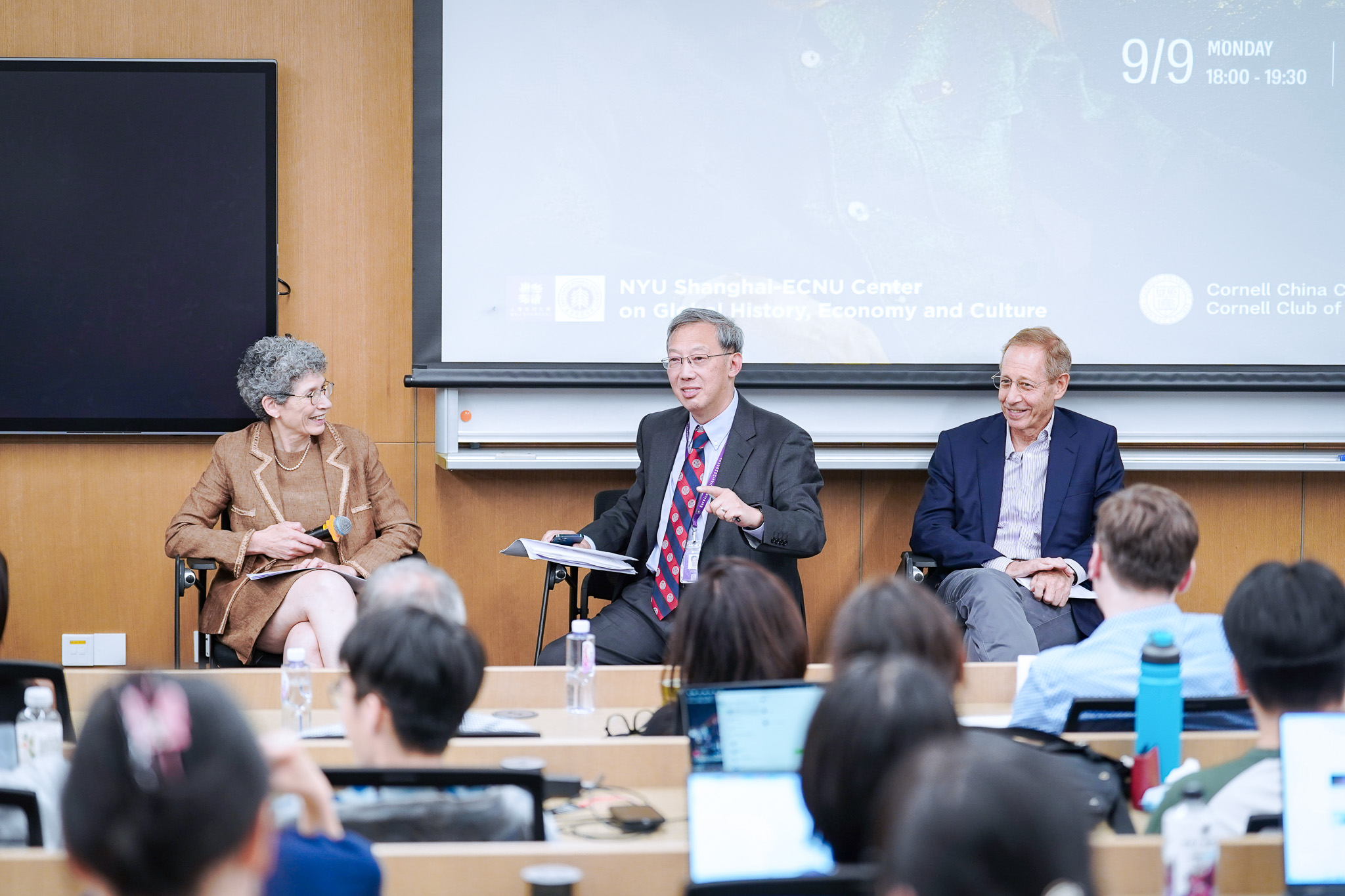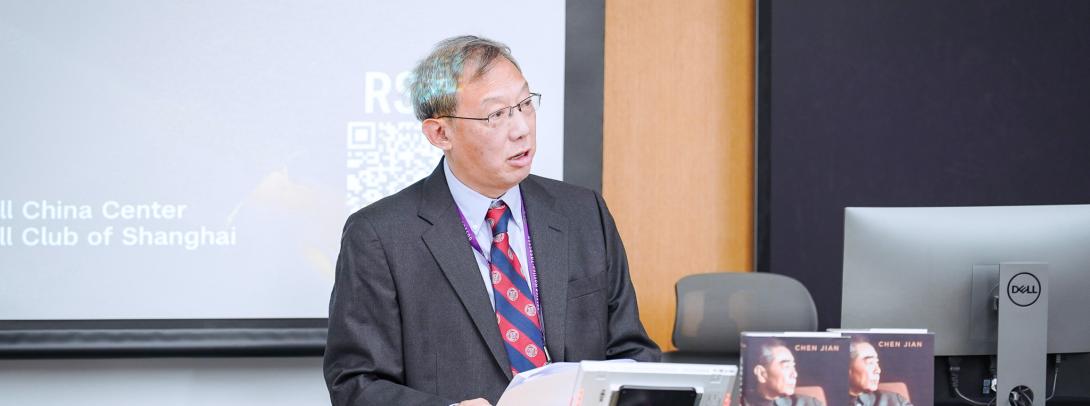Who was the real Zhou Enlai? What were his visions and aspirations? What role did he play in shaping China into the nation it is today? These are some of the themes explored in Distinguished Global Network Professor of History Chen Jian’s new book, Zhou Enlai: A Life, published in May. On September 9th, Chen presented an in-depth analysis and behind-the-scenes story of the book to the NYU Shanghai community. The event, co-chaired by Vice Chancellor Jeffrey Lehman and Provost Joanna Waley-Cohen, attracted a standing room only audience of over 120 people and was broadcast to a global audience via Zoom.

A 20-Year Endeavor
The initial spark of inspiration for Zhou Enlai was ignited way back in 2004, Chen recalled, when Melvyn Leffler, an eminent diplomatic historian and a colleague at UVA invited him to write a short biography of the former Chinese premier to be included in a series on influential 20th-century statesmen. “However, only after I started working on it did I realize it was far more complicated and challenging,” he said. “Zhou is certainly not a simple person. The more I studied Zhou and prepared to write, the more I began to question myself: Do I really know Zhou?”
As a historian, the 2000s was a golden period for Chen, with the opening of many valuable archives in China. From the municipal and provincial level up to the foreign ministry, vast amounts of documents were declassified. For the first time, many historical moments that had previously been unknown or only existed in oral accounts now had written records. “I felt like a greedy child in a candy store, trying to absorb as much as I could,” Chen said. When he realized no comprehensive biography of Zhou existed in English literature, “I decided that instead of writing a short book, I would take full advantage of these archival resources and compose a full-dress biography of Zhou Enlai,” he said.
He began writing in mid-2014, around the time he joined NYU Shanghai. He expressed gratitude for “the university’s support and for the stimulating questions our students raised in my courses and seminars over the years,” he said. While it took him over two decades of research and writing, Chen held firm to his commitment and pushed himself to finish the book draft by the end of 2022.

Who Was Zhou?
Zhou served as premier for 27 years, from the founding of the People’s Republic of China until his death in 1976. However, Zhou’s contributions far exceeded his administrative and executive capacities as premier. Supported by multi-lingual, multi-archival, and multi-source research, Chen presents a well-rounded portrait of Zhou as a devoted Communist revolutionary, an influential politician and statesman, an accomplished diplomat, and, ultimately, a human being.
From a young age, Zhou took on the mission of “making China rise again in the world.” From exploring the best ways to revitalize China, to embracing communism and leading the Chinese Communist revolution, to meticulously navigating China through post-revolutionary chaos, Zhou played an important part throughout modern Chinese history and the revolutionary era. “To understand Zhou,” Chen said, “one must understand his time. Zhou lived in an era of revolution, which was extremely complicated and full of paradoxes and dilemmas. In his talk, Chen emphasized Zhou was a giant, “a 20th-century giant.”

“A Must-Read”
After Chen’s talk, Kenneth Jarrett, former president of the American Chamber of Commerce in Shanghai, who was invited to speak as a commentator, shared his insights on the book.
Jarrett’s curiosity about China dates back to his college days at Cornell University. Reflecting on his own experiences studying China, he called the book “quite valuable as it takes us through China’s modern history, from Zhou’s time to the present, offering a unique perspective on what was happening in China,” he said. “In that sense, we owe Professor Chen our thanks for filling an important gap in academic scholarship on Zhou Enlai’s life.”
During the Q&A session, audience members asked questions about Zhou Enlai’s various roles during the Chinese Communist revolution, his major political decisions, and the differences between Zhou and other Chinese leaders, sparking spirited discussions with Chen.
Bringing the event to a close, Chen referred to Zhou Enlai as “a firm believer in socialism with a human face.” Chen closed the event by reminding the audience that though Zhou’s era has long passed, his legacy and his views on pursuing genuine modernity for China still carry an influence on contemporary China. “There are still questions from Zhou’s time that are worth contemplating today,” said Chen.


